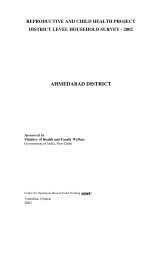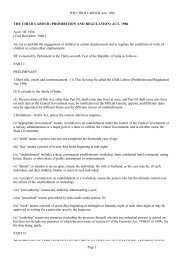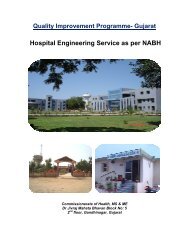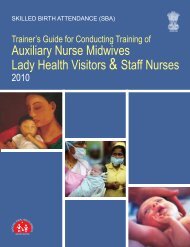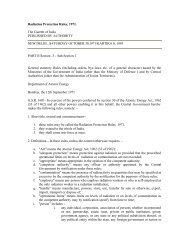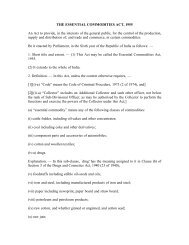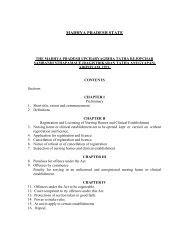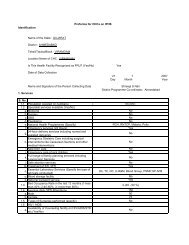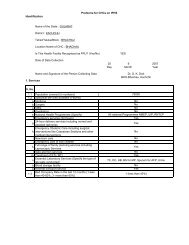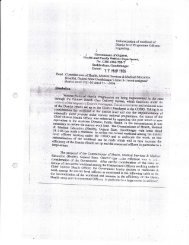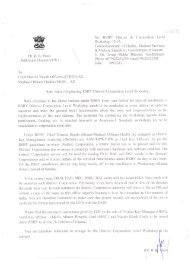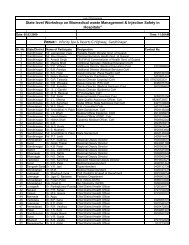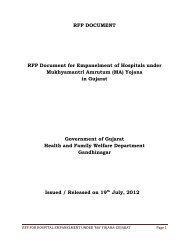Respiratory distress in - Newbornwhocc.org
Respiratory distress in - Newbornwhocc.org
Respiratory distress in - Newbornwhocc.org
Create successful ePaper yourself
Turn your PDF publications into a flip-book with our unique Google optimized e-Paper software.
NNF Teach<strong>in</strong>g Aids:Newborn Care<br />
Slide RD-8<br />
Assessment of respiratory <strong>distress</strong><br />
Table 1: Score for respiratory <strong>distress</strong><br />
Score<br />
0 1 2<br />
Resp. rate 80<br />
Central cyanosis None None with 40% FiO 2 Need >40% FiO 2<br />
Retractions None Mild Severe<br />
Grunt<strong>in</strong>g None M<strong>in</strong>imal Obvious<br />
Air Entry Good Decreased Very poor<br />
A score of greater than 6 would <strong>in</strong>dicate severe respiratory <strong>distress</strong>.<br />
Slide RD-9<br />
Chest exam<strong>in</strong>ation<br />
Exam<strong>in</strong>ation of the chest could be helpful <strong>in</strong> diagnos<strong>in</strong>g the etiology. In MAS,<br />
the chest is hyper<strong>in</strong>flated. Air entry is usually decreased <strong>in</strong> severe RDS.<br />
Mediast<strong>in</strong>al shift could occur <strong>in</strong> pneumothorax or diaphragmatic hernia. Distant<br />
heart sounds could give a clue to the diagnosis of pneumothorax.<br />
Slide RD-10<br />
Approach <strong>in</strong> preterm<br />
In a preterm baby, early onset respiratory <strong>distress</strong> which is progressive is<br />
<strong>in</strong>variably due to RDS. However, if <strong>distress</strong> is transient, asphyxia, hypoglycemia<br />
and hypothermia could contribute. Other causes of <strong>distress</strong> which occur <strong>in</strong> term<br />
babies could also occur <strong>in</strong> preterm babies, but the most common and important<br />
cause <strong>in</strong> pre term babies is RDS. Pneumonia could present at anytime after<br />
birth.<br />
Slide RD-11<br />
Approach <strong>in</strong> term<br />
In term babies etiology could differ depend<strong>in</strong>g on the time of onset of <strong>distress</strong>.<br />
If the baby has tachypnea beg<strong>in</strong>n<strong>in</strong>g at birth the causes could be TTNB or<br />
secondary to polycythemia. If the <strong>distress</strong> beg<strong>in</strong>s early but is more severe it<br />
may be due to MAS, pneumonia, asphyxia or malformations.<br />
3



